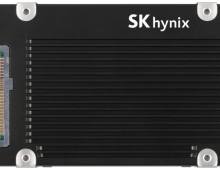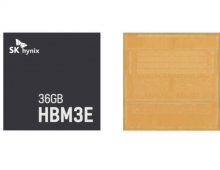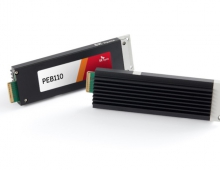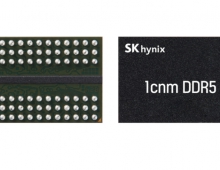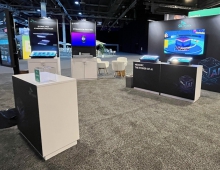
Court Grants Rambus Supplemental Damages in Hynix Case
The U.S. District Court for the Northern District of California has granted Rambus' request for supplemental damages following an earlier jury verdict finding nine Rambus patents valid and infringed by Hynix SDRAM products.
According to the order, Hynix is to pay Rambus royalties of 1% for SDR SDRAM products and 4.25% for DDR SDRAM products made, used, or sold in the United States after December 31, 2005. DDR SDRAM products include DDR SDRAM, DDR2 SDRAM, DDR3 SDRAM, GDDR SDRAM, GDDR2 SDRAM, GDDR3 SDRAM, and DDR SGRAM. These supplemental damages are in addition to those previously awarded in the amount of $133M for Hynix?s infringement through December 31, 2005.
While the Court denied Rambus' request for injunctive relief, it did order Rambus and Hynix to negotiate the terms of a compulsory license to allow Hynix to continue to make, use, and sell SDR SDRAM and DDR SDRAM products.
"We are pleased with the Court?s order of supplemental damages," said Tom Lavelle, senior vice president and general counsel at Rambus. "We believe any compulsory license between the two parties must fairly compensate Rambus for Hynix's ongoing use of our patented inventions."
"Hynix is gratified that the court rejected Rambus' request for an injunction, but is disappointed by the district court's damages ruling and will file an appeal when the final judgment is entered," Hynix said in a statement. "Hynix believes that Rambus' patents, as has been recently confirmed by certain rulings of the US Patent & Trademark Office, are invalid. In addition, Hynix maintains that Rambus?s conduct in destroying evidence relevant to the litigation between Hynix and Rambus, and Rambus and the rest of the DRAM industry, bars Rambus from enforcing its patents. The United States District Courts for Delaware and Virginia have already ruled that Rambus is guilty of destroying evidence; the decision of the California court conflicts with these other court decision," Hynix claims.
Hynix said that its US sales of DRAMs will continue uninterrupted.
The case with Hynix was originally filed by Hynix against Rambus in August 2000. Judge Whyte split the case into three separate phases with Rambus prevailing in all three phases. Cases are still pending against Hynix, Nanya, Micron, and Samsung in the Northern District of California.
In related news, the United States Supreme Court has denied a request by the Federal Trade Commission (FTC) to review the Rambus case, bringing to a close its Sherman Act antitrust claims against Rambus.
"Eleven DC Circuit judges examined the FTC's case, and not one supported it in any way. The Solicitor General did not support the FTC's petition for certiorari, and now the Supreme Court has denied its petition," said Tom Lavelle, senior vice president and general counsel at Rambus. "After enduring years of lost business, uncertainty, and spending millions of dollars defending ourselves against the FTC's ill-founded allegations, we?re pleased the Supreme Court has put an end to these claims."
The FTC brought antitrust charges against Rambus in 2002. A three month trial was held in the spring of 2003 before Administrative Law Judge (ALJ) Stephen McGuire, who issued his initial decision exonerating Rambus with over 1,600 findings of fact in its favor in early 2004. The FTC?s own Complaint Counsel appealed the decision of the fact-finder to the full Commission, which reversed the ALJ and found Rambus liable for violating Section 2 of the Sherman Act. Following Rambus? appeal of that decision, the Court of Appeals for the District of Columbia (CADC) vacated the FTC orders.
While the Court denied Rambus' request for injunctive relief, it did order Rambus and Hynix to negotiate the terms of a compulsory license to allow Hynix to continue to make, use, and sell SDR SDRAM and DDR SDRAM products.
"We are pleased with the Court?s order of supplemental damages," said Tom Lavelle, senior vice president and general counsel at Rambus. "We believe any compulsory license between the two parties must fairly compensate Rambus for Hynix's ongoing use of our patented inventions."
"Hynix is gratified that the court rejected Rambus' request for an injunction, but is disappointed by the district court's damages ruling and will file an appeal when the final judgment is entered," Hynix said in a statement. "Hynix believes that Rambus' patents, as has been recently confirmed by certain rulings of the US Patent & Trademark Office, are invalid. In addition, Hynix maintains that Rambus?s conduct in destroying evidence relevant to the litigation between Hynix and Rambus, and Rambus and the rest of the DRAM industry, bars Rambus from enforcing its patents. The United States District Courts for Delaware and Virginia have already ruled that Rambus is guilty of destroying evidence; the decision of the California court conflicts with these other court decision," Hynix claims.
Hynix said that its US sales of DRAMs will continue uninterrupted.
The case with Hynix was originally filed by Hynix against Rambus in August 2000. Judge Whyte split the case into three separate phases with Rambus prevailing in all three phases. Cases are still pending against Hynix, Nanya, Micron, and Samsung in the Northern District of California.
In related news, the United States Supreme Court has denied a request by the Federal Trade Commission (FTC) to review the Rambus case, bringing to a close its Sherman Act antitrust claims against Rambus.
"Eleven DC Circuit judges examined the FTC's case, and not one supported it in any way. The Solicitor General did not support the FTC's petition for certiorari, and now the Supreme Court has denied its petition," said Tom Lavelle, senior vice president and general counsel at Rambus. "After enduring years of lost business, uncertainty, and spending millions of dollars defending ourselves against the FTC's ill-founded allegations, we?re pleased the Supreme Court has put an end to these claims."
The FTC brought antitrust charges against Rambus in 2002. A three month trial was held in the spring of 2003 before Administrative Law Judge (ALJ) Stephen McGuire, who issued his initial decision exonerating Rambus with over 1,600 findings of fact in its favor in early 2004. The FTC?s own Complaint Counsel appealed the decision of the fact-finder to the full Commission, which reversed the ALJ and found Rambus liable for violating Section 2 of the Sherman Act. Following Rambus? appeal of that decision, the Court of Appeals for the District of Columbia (CADC) vacated the FTC orders.

